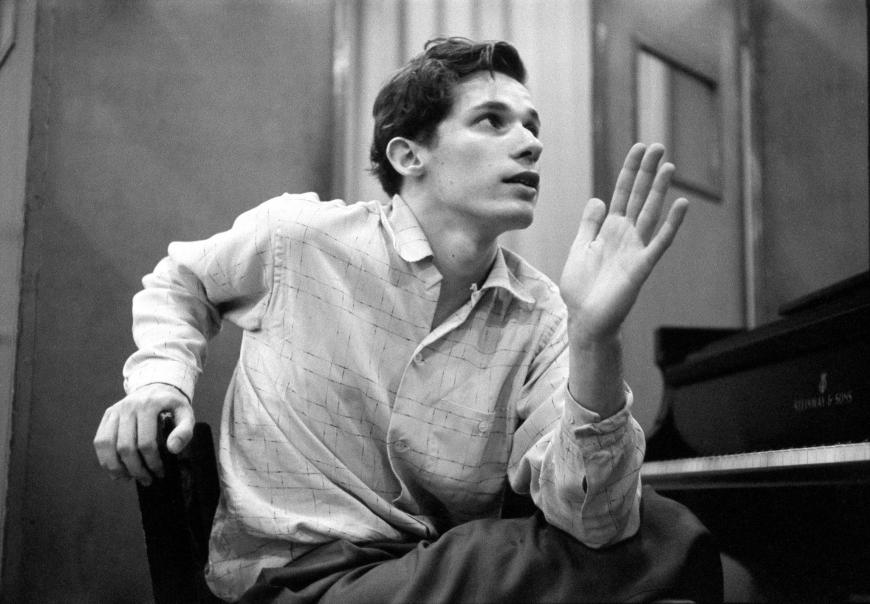by Jarrett Hoffman

•A busy noontime: organist Christa Rakich at the Covenant, and Rhiannon Giddens with Francesco Turrisi at Oberlin
•Oberlin announces partnership with United Nations and Global Foundation for Performing Arts
•Ohio Light Opera releases calendar for summer 2023
•Almanac: looking back on a surprising speech from Leonard Bernstein before a performance with Glenn Gould
HAPPENING TODAY:
It’s no surprise to see an organist playing at 12 pm on a Tuesday, given the name of Church of the Covenant’s weekly Tuesday Noon Organ Plus series. Today’s featured performer is Christa Rakich, who will play her own music in addition to that of J.S. Bach. It’s free, and it’s offered both in person and online.
There’s also a second noontime event today: a performance by the genre-blending roots duo of Rhiannon Giddens and Francesco Turrisi to open this season’s Oberlin Artist Recital Series, which returns following a two-year absence. The concert in Finney Chapel will be centered in part around the duo’s most recent album, They’re Calling Me Home, which mixes music from America, Italy, and Ireland. Read a preview article by Mike Telin here, and get tickets here.
NEWS BRIEFS:
Oberlin College & Conservatory has announced a partnership with the United Nations Institute for Training and Research and the Global Foundation for the Performing Arts to expand international students’ access to academic and musical instruction at U.S.-based colleges and universities. Among the handful of higher-educational institutions that are involved in this collaboration, the partnership with Oberlin is the only one focused on undergraduate studies. Read a press release here.
And for those who are in withdrawal from summer weather and musical theater, Ohio Light Opera has released the calendar for its 2023 season. You can also see the list of shows here.
TODAY’S ALMANAC:

One famous incident that illustrates his unique persona came on April 6, 1962, when he soloed with the New York Philharmonic at Carnegie Hall. The conductor was Leonard Bernstein, who felt compelled to offer the audience an explanation of sorts before the performance of Brahms’ Piano Concerto No. 1 in d.
Among the highlights of Bernstein’s remarks:
You are about to hear a rather, shall we say, unorthodox performance of the Brahms D-Minor Concerto. A performance distinctly different from any I’ve ever heard, or even dreamt of for that matter, in its remarkably broad tempi and its frequent departures from Brahms’ dynamic indications.
I cannot say I am in total agreement with Mr. Gould’s conception…I have only once before in my life had to submit to a soloist’s wholly new and incompatible concept — and that was the last time I accompanied Mr. Gould. But this time the discrepancies between our views are so great that I feel I must make this small disclaimer.
Then why…am I conducting it?…Because I am fascinated, glad to have the chance for a new look at this much-played work. Because, what’s more, there are moments in Mr. Gould’s performance that emerge with astonishing freshness and conviction. Thirdly, because we can all learn something from this extraordinary artist, who is a thinking performer.
And finally because there is in music what Dimitri Mitropoulos used to call “the sportive element,” that factor of curiosity, adventure, experiment — and I can assure you that it has been an adventure this week collaborating with Mr. Gould on this Brahms concerto. And it’s in this spirit of adventure that we now present it to you.
Listen to the speech and the performance on YouTube, and read about critics’ reactions to both of those here.



